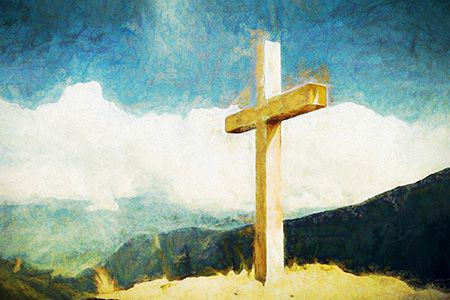 Isaiah 66:18-21
Isaiah 66:18-21
 Hebrews 12:5-7,11-13
Hebrews 12:5-7,11-13
 Luke 13:22-30
Luke 13:22-30
The saying of the narrow door in Luke's Gospel also appears in the Gospel of Matthew with some modifications in content and meaning (rf Mt 7:13-14). And though they are put in different contexts, both describe a situation that is difficult and laborious.
It is difficult because the narrow door is hard to find and upon finding it, it is hard to enter (rf Mt 7:14, Lk 13:24). It is laborious because it involves constant struggle not merely in one's moral choice but perseverance in pursuing the way that leads to eternal life (rf Mt 7:14). Jesus thus lays down two conditions: concentrated effort to find the narrow door and rigorous effort to enter it.
Earlier in Luke's Gospel, John the Baptist has already forewarned the Jewish people that family heritage is no guarantee for salvation (rf Lk 3:8). Now Jesus elaborates it further: it is not only insufficient to be the children of Abraham; neither are those with whom Jesus associates or to whom Jesus preaches the Gospel (rf Lk 13:26-27, Mt 7:21-23). Only by accepting Jesus' message and demand will one be admitted to the heavenly feast. It is those (Gentiles included) with the faith of Abraham and who hear and do what Jesus said are entitled to enter. Again, like John the Baptist who preached a baptism of repentance with urgency (rf Lk 3:9, Mt 2:10), Jesus' warning also demands immediate action. The door will not remain open indefinitely and once it is shut, there is absolutely no way to get in anymore (rf Lk 13:25). So “will only a few people be saved?” (Lk 13:23).
In the Old Testament, the motif of the surviving remnants scattered throughout the books of the prophets (rf Is 4:2-3; 9:27; 11:11-12; 62:12, Zec 8:1-14; 13:8-9, Mi 2;12, Jer 23:3, Jl 3:5, Ob 3:5). On one hand, they foretold the forthcoming exile and the destruction of Jerusalem but on the other hand, the hope and promise of Israel's survival and restoration through the faithful remnants. In Jesus' time, the number of those who will be saved is still a concern of the Jews. Contrary to what was understood, Jesus replies by portraying a multitude of people instead of a few and they “will come from the east and the west and from the north and the south” (Lk 13:29). Salvation is God's gift freely given to the Jews, but now it is also extended to the Gentiles. Through belief and acceptance of Jesus, those who are called last (the Gentiles) will precede those to whom the invitation to enter the Kingdom was first made (the Jews).
Struggle for the Jews therefore entails both the acceptance of Jesus and the reality of the inclusive rights of others into God's kingdom. As the chosen people, the Jews are told not to pin their salvation simply on their ties with Abraham. But how about us? Does Jesus' warning also apply to us? Is our baptism a one-way ticket to heaven? And should we also be concerned like the Jews as to the number of us who will be saved? Now that we are included in God's salvation plan, should our attitude be a spirit of gratitude and humility, and our response a will of repentance and good deeds? Like St. Paul who told the Philippians to work out their salvation with fear and trembling (rf Phil 2:12), what if because of presumption, pride or laxity, we are the ones to stand outside knocking when the master comes?
